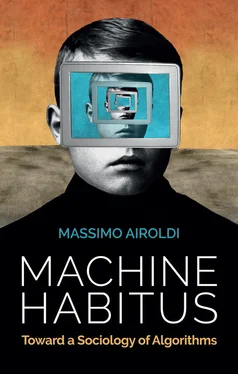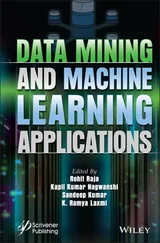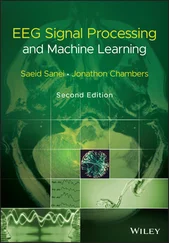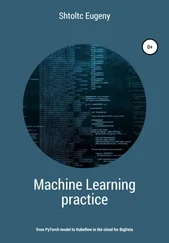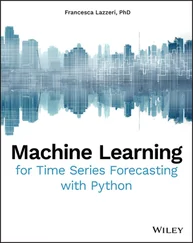The theory of habitus has been fruitfully used to shed light on research problematics as diverse as colonial oppression (Bourdieu 1979), linguistic exchanges (Bourdieu 1991), educational inequalities (Bourdieu and Passeron 1990), gender dynamics (Bourdieu 2001), academic life (Bourdieu 1988) and racialized sport practices (Wacquant 2002) – among many others. The explanatory relevance of the concept has been recognized well beyond the disciplinary boundaries of sociology (see Costa and Murphy 2015; Schirato and Roberts 2018). Evidence from psychology and the cognitive sciences has substantially validated the idea – which Bourdieu borrowed from the work of the French developmental psychologist Jean Piaget – that socially conditioned experiences are interiorized by individuals as stable cultural schemas, and that these classifying and perceptual structures generate practical action in pre-reflexive ways (Lizardo 2004; Vaisey 2009; Boutyline and Soter 2020).
The habitus is a sort of invisible lens through which agents see the world and act within it. Individual action is neither determined a priori, nor entirely free. Rather, it results from the contingent interplay between a cognitive ‘model’ shaped by the habitus and external ‘inputs’ coming from the environment:
the modes of behaviour created by the habitus do not have the fine regularity of the modes of behaviour deduced from a legislative principle: the habitus goes hand in hand with vagueness and indeterminacy. As a generative spontaneity which asserts itself in an improvised confrontation with ever-renewed situations, it obeys a practical logic, that of vagueness, of the more-or-less, which defines one’s ordinary relation to the world. (Bourdieu 1990b: 77–8, cited in Schirato and Roberts 2018: 138)
Lizardo describes the habitus (and its ‘vague’ situational outcomes) in probabilistic, quasi-statistical terms as a path-dependent ‘practical reason’ that ‘biases our implicit micro-anticipations of the kind of world that we will encounter at each moment expecting the future to preserve the experiential correlations encountered in the past’ (2013: 406). Because of the inevitable social conditioning of one’s ‘experiential correlations’, our reasoning and practice are culturally biased, and this ‘shapes how we choose careers, how we decide which people are “right” for us to date or marry, and how we raise our children’ (Calhoun et al. 2002: 261).
During a 1990 TV interview, cited at the very beginning of this book, Bourdieu compared the habitus to a computer program, a ‘programme d’ordinateur’ which generatively responds to the world’s stimuli. Now consider a real computer program based on machine learning, such as an AI system capable of autonomously classifying images based on their visual features. The use of deep learning image-recognition technologies has become increasingly common (Kelleher 2019). One could realistically train an artificial neural network to recognize ‘beautiful photographs’ posted on the Internet and distinguish them from the ‘ugly’ ones. A bit like in the case of AlphaGo mentioned above, the machine training here would basically consist in feeding the algorithm with many pictures labelled as ‘beautiful’ or ‘ugly’: the final computational model will inductively emerge from this experiential, feedback-based learning process (Pasquinelli 2017; Broussard 2018). It can be argued that a hypothetical neural network trained on images labelled by the working-class research participants of Distinction (Bourdieu 1984) will then tend to classify as ‘beautiful’ those presenting the aesthetic features privileged by a working-class habitus, such as postcard-like mountain views, or boat-sea-sunset sceneries. Conversely, if trained on the data of Bourdieu’s middle-class respondents, the same deep learning system will ‘see’ input images through the lens of a bourgeois habitus instead, and its classificatory practices will then be likely to be more omnivorous and diversified. Depending on the set of ‘experiential correlations’ (Lizardo 2013: 406) and statistical dispositions structuring the model, the machine learning algorithm will generate alternative probabilistic outcomes. Ergo, Bourdieu’s sentence ‘the body is in the social world but the social world is in the body’ (Bourdieu 1982: 38, cited in Bourdieu and Wacquant 1992: 20) could easily be turned into the following: the code is in the social world, but the social world is in the code.
Having neither ‘corps’ nor ‘âme’ (Wacquant 2002), machine learning systems encode a peculiar sort of habitus, a machine habitus . These types of algorithms can be practically socialized to recognize an ‘attractive’ human face, a ‘similar’ song, a ‘high-risk’ neighbourhood or a ‘relevant’ news article. Their ‘generative rules’ (Lash 2007: 71) are largely formed based on digital traces of the structurally conditioned actions, evaluations and classifications of consumers and low-paid clickworkers (Mühlhoff 2020). Confronted with new input data, machine learning systems behave in probabilistic, path-dependent and pre-reflexive ways. Rather than resembling the mechanical outputs of an analogue calculator, their practices result from the dynamic encounter between an adaptive computational model and a specific data context – that is, between a machine habitus’ ‘embodied history’ (Bourdieu 1990a) and a given digital situation.
According to Sterne, while it is true that ‘Bourdieu rarely confronts technology head-on’, his work ‘might help us to better study technology’ (2003: 371). In fact, as Sterne notes, ‘technologies are little crystallized parts of habitus’, since they embody ‘particular dispositions and tendencies – particular ways of doing things’ (2003: 376–7). On the one hand, the theoretical angle offered by the notion of machine habitus could contribute to obliterating ‘the long-imagined distinction between technology and society’ (Sterne 2003: 386). On the other hand, attributing a habitus to an inanimate machine allows us to sidestep a common criticism of Bourdieu’s theoretical apparatus, which is often accused of being overly deterministic (Schirato and Roberts 2018). Critics of the theory of habitus have pointed out that, since social life is inherently meaningful to subjects, the latter can at least partly decode and problematize the mechanisms of structural domination they are subjected to (King 2000: 418; Jenkins 1993). However, machine learning systems have no ‘meaningful’ social life, reflexivity or consciousness. As social agents, they simply put forward a truly practical reason by actualizing cultural dispositions acquired from datafied experiences that – according to what we know so far – have no intrinsic ‘meaning’ for them (Fjelland 2020).
After all, ‘machine habitus’ is just a metaphor. Unlike dominated subjects, algorithms do not suffer the ‘weight of the world’ Bourdieu (1999) was concerned about. They do not play distinction games to affirm their symbolic power, nor do they have a body carrying the indelible scars of social struggle. Still, algorithms – especially, machine learning algorithms – have a major part in how the social world works. As opaque technologies orienting our digital lives, they contribute to distinction mechanisms by ordering the circulation of cultural content and filtering it in path-dependent, personalized ways (Beer 2013a; Morris 2015; Prey 2018; Fourcade and Johns 2020). Algorithmic systems have a role in the amplification of material and symbolic inequalities, as witnessed by automated forms of discrimination against the poor in the US (Eubanks 2018), or by the ubiquitous computational reinforcement of race and gender stereotypes (Noble 2018). Although they do not have a culturally connotated accent, like the French peasants discriminated against by the Parisian elite (Bourdieu 1991), chatbots and digital assistants may use different vocabularies and registers depending on their training and past communications. These machines are certainly different from human beings, but they perhaps contribute even more than we do to the ‘reproduction’ (Bourdieu and Passeron 1990) of an unequal, yet naturalized, social order.
Читать дальше
